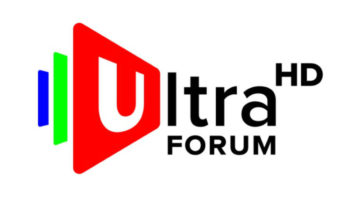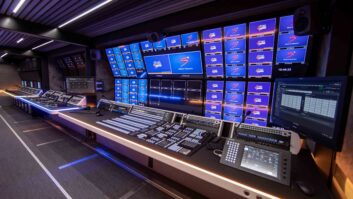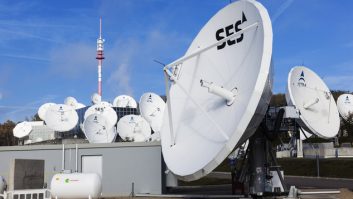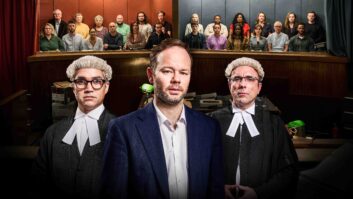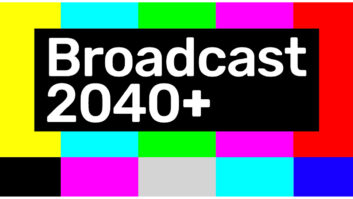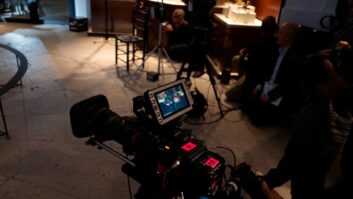450 high-def triallists, all based in the London area, have given an enthusiastic ‘thumbs up’ to a terrestrial HDTV trial, now half way through the test period. The 4-channel trial uses two transmission streams, and runs until March 2007 with specially modified MPEG-4 boxes from Humax and ADB. However, the broadcasters involved say they ideally need ‘gifted’ spectrum to come from government for future HD services, writes Chris Forrester.
Simon Fell, Director of Technology at ITV Consumer, said the results were well ahead of expectations. In a November 21 presentation Fell said broadcasters were now confident that a two-multiplex system could handle 5 or 6 full HD channels. “The trial has two channels transmitting at 19 Mbps using MPEG-4. We are at the very beginning of H264 encoding without an optimised chipset, or matching encoding and decoding. Recent EBU tests have showed extremely high-quality HD, using MPEG-4 at 6Mbps albeit derived from high-quality source material. This is the future. By the spring of 2007 we will achieve realtime encoding down to nearer 10 Mbps.”
Initial results from the test show that viewers were almost uniformly pleased with the end results. “I am totally blown away,” said one enthusiastic viewer. “The quality of the image is fantastic.” Viewers said HD was best on wildlife, sport and films. Even though news was not part of the trial, 84% of viewers said they wanted to see news in HD. 86% of viewers thought it “very important” that HD be available on DTT, while 90% strongly agreed that channels from the BBC, ITV, and channels 4 and ‘five’ should be at the forefront in terms of HD.” While 49% said they were not prepared to pay for HD, 37% said they’d be willing to pay between _1-_5 a month for their 5 “favourite” channels, and 13% said they’d be prepared to pay _6-_10 a month for such services.
Jonathan Thompson, director of strategy & research C4, and Charles Constable, director of strategy at ‘Five’, agreed that Ofcom now needed to be persuaded of HD’s importance on DTT. Thompson said broadcasters were already in talks with Ofcom and others in government about future strategy.
“We understand Ofcom has been doing a lot of work over the summer, and their Digital Dividend discussion paper is due shortly, and from that consultation we’d hope to see some direction next year as to how spectrum might be released,” said Thompson. “My concern would be that if the only route to secure spectrum would be via an auction, then the economic costs as well as the risks of not securing spectrum, would make the process very difficult. We would argue that there should be some sort of public policy decision about how the spectrum is used,” added Constable.
“Technically, we could launch HD region by region, starting in 2008.” said Fell. “But it would be expensive. Ofcom and government would have to decide.”
